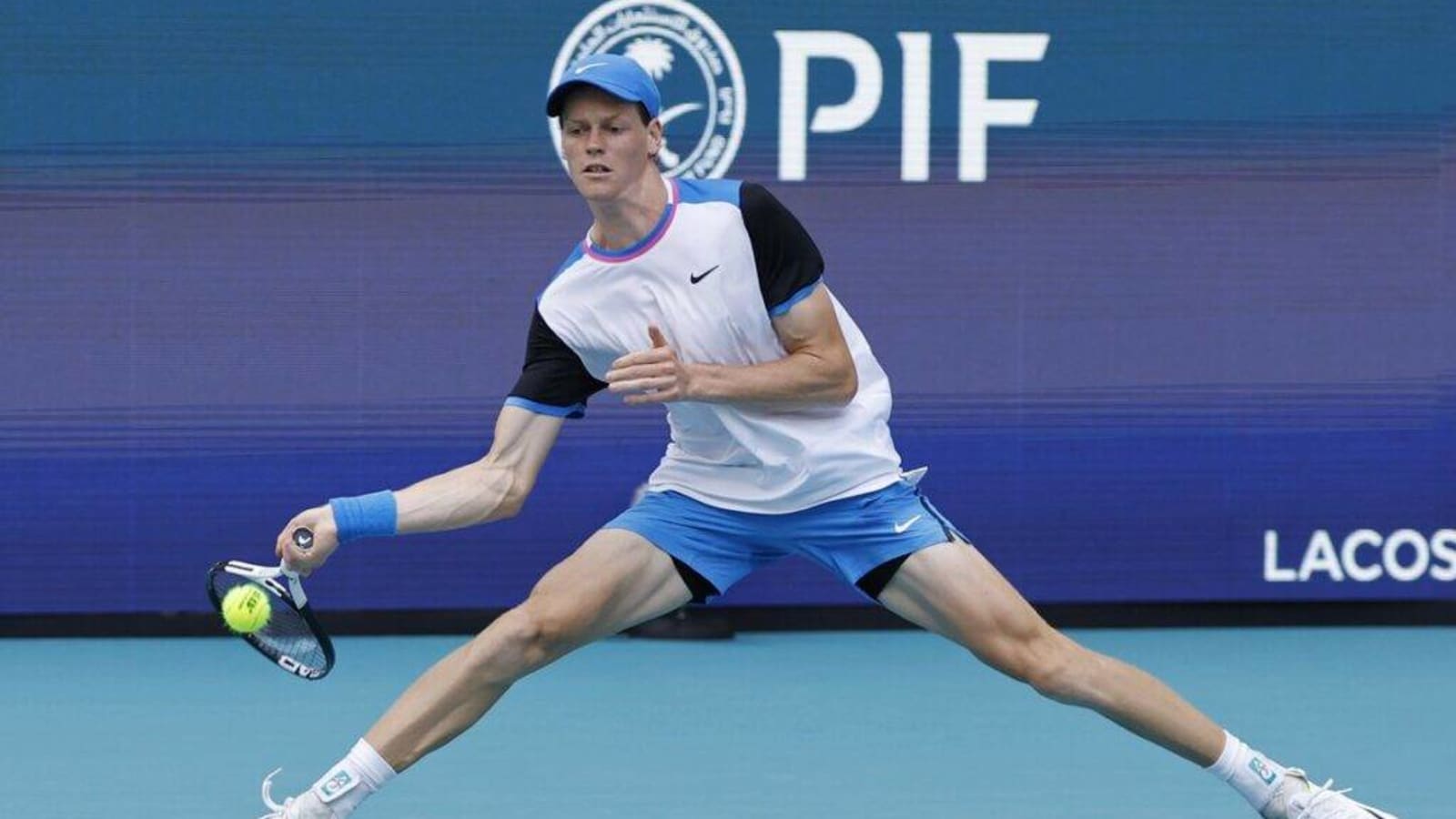
The Professional Tennis Players Association (PTPA) has strongly criticized the current anti-doping system following Jannik Sinner’s three-month suspension, calling it “unfair,” “inconsistent,” and lacking transparency. In a scathing statement, the PTPA condemned the governing bodies for their handling of doping cases, arguing that the system prioritizes bureaucratic process over catching true offenders and fails to ensure equal treatment for all athletes.
PTPA’s Stance on the Sinner Case
World No. 1 Sinner, who recently won his first Grand Slam title of the year at the Australian Open, was handed a suspension after testing positive for clostebol, a banned substance, in 2024. WADA initially appealed the ITIA’s decision to clear him, leading to an eventual settlement that imposed a retroactive three-month ban from February to May.
The PTPA’s statement did not take a stance on Sinner’s individual guilt or innocence, but rather highlighted the broader structural issues within anti-doping governance.
“The ‘system’ is not a system. It’s a club,” the statement read. “Supposed case-by-case discretion is, in fact, merely cover for tailored deals, unfair treatment, and inconsistent rulings.”
The organization criticized the lack of transparency and consistency in how cases are handled, arguing that different players face vastly different outcomes depending on factors beyond their control. It also accused tennis’s regulatory bodies—including the ATP, WTA, Grand Slam organizers, ITIA, and WADA—of failing to reform the system and create a fair process for all athletes.
“This bias is unacceptable for all athletes and shows a deep disrespect for every sport and its fans. It’s time for change. And we will change it,” the statement concluded.
PTPA President Expands on Systemic Failures
Further elaborating on the issue, PTPA president Ahmad Nassar issued a detailed breakdown of the flaws in the current anti-doping system. His criticism focused on several key areas:
The True Purpose of Anti-Doping Policies
Nassar argued that the system should focus on catching athletes who intentionally dope to gain an advantage, rather than penalizing minor infractions that offer no performance enhancement. “It is more about foot-faulting athletes than actually catching dopers,” he said.
Burdensome and Unfair Testing Process
The global nature of tennis makes the anti-doping protocols particularly challenging for players, requiring extensive travel while still adhering to stringent, often impractical testing requirements.
Inconsistent Sanctions and Due Process Issues
Nassar emphasized the need for a uniform appeals system that allows all players—regardless of financial resources—the ability to defend themselves properly. He noted that wealthier players can afford legal representation, while others may lack the means to mount an adequate defense, leading to disproportionate punishments.
Sinner as a Victim of Bureaucratic Disputes
While Sinner’s case has now been resolved, Nassar pointed out that the delay in reaching a decision stemmed more from a power struggle between the ITIA and WADA than from the merits of the case itself. “He is, in effect, caught up in a political/legal dispute between the ITIA and WADA,” he explained. “That is unfair.”
Sinner’s team released a statement following his acceptance of the doping ban, which runs from this month until May 4th.
What’s Next? Calls for Reform and Systemic Change
The PTPA has long advocated for more transparency in the sport’s governance, and this latest controversy has renewed calls for systemic reform. While it remains unclear what specific changes the organization will push for, Nassar emphasized that the system, as it stands, is detrimental to both players and the integrity of the sport.
“This entire system is terrible for the athletes (as a group and as individuals), the fans, and the sport overall,” he stated. “It needs to change.”
With Sinner’s suspension reigniting the debate over anti-doping fairness, pressure is mounting on the ATP, WTA, and regulatory bodies to address growing concerns about inconsistent rulings and due process failures. The PTPA’s latest statement suggests that the fight for change is only just beginning.
More must-reads:
- Anthony Rendon restructure will finally end Los Angeles' $245M mistake
- TCU walks off No. 16 USC in OT on wild third-down play to end Alamo Bowl
- The 'Top-50 all-time NFL rushers' quiz
Breaking News
Trending News
Customize Your Newsletter
 +
+
Get the latest news and rumors, customized to your favorite sports and teams. Emailed daily. Always free!








